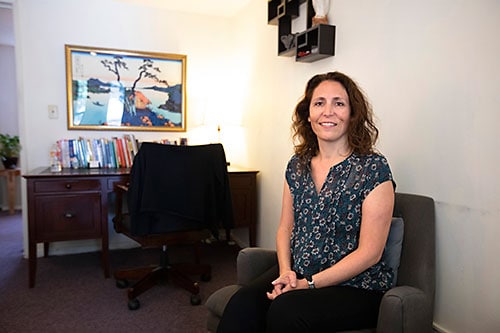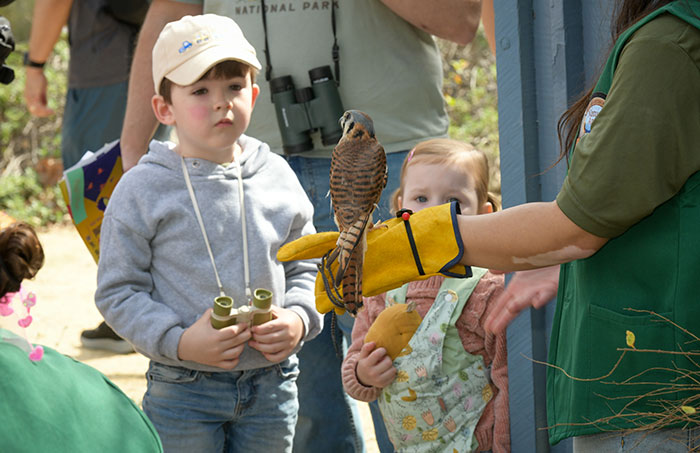The mixed psychology of ‘Safe at Home’

by Mick Rhodes | mickrhodes@claremont-courier.com
“Safe at Home,” is of course the best course of action to arrest the spread of coronavirus, but could all this sudden, isolated close quarter-living put a strain on our mental health?
Of course it could.
“I think for all of us, we like our routine,” said psychologist Kirsten Bonaventura. “We like following through with the assignments that are due, the expectations at work, and being able to get what we want to at the grocery store. I think it’s thrown everyone off in that way. It’s kind of a collective experience.”
Ms. Bonaventura has been practicing in Claremont since 2012. She says she’s already begun to see increased anxiety in some of her clients.
She offered COURIER readers some helpful tips for quelling what promises to be an increase in anxiety while we’re “Safe at Home” over these next weeks or months.
At the top of the list was of course, the news.
• Pay attention to your triggers
“It’s important to pay attention to when you’re feeling anxious,” Ms. Bonaventura said. “If you notice that every time you turn on the TV that anxiety rises, then turn it off,” she said.
That doesn’t mean that we shouldn’t stay informed. She suggests checking in less frequently in a way that feels the least anxiety provoking, maybe through a trusted radio or internet source.
Anxiety triggers—especially now during these extremely heightened times—can come in many different forms. What’s most important is that we recognize the source.
“Pay attention to it,” she said. “Notice it, and then make a change to reduce your anxiety. If calling your brother raises your anxiety because his approach is so different, or he is pessimistic, then maybe cut back on those phone calls, or maybe check in in a different way. This is an important time to be noticing how we’re feeling, and to make a shift.”
• Get outside
Even though we’re all hopefully “Safe at Home,” it’s still important to everyone to be getting outdoors every day.
“It’s important to be outside to be mindful, but also with kids to be in the front or back yard away from other people, is a great outlet for them,” Ms. Bonaventura said. “It’s so easy when we’re cooped up with others to get frustrated, so getting a break and getting a new refreshing environment is a good idea for everyone.”
Getting out can mean a stroll or run around the neighborhood, taking the dog for a walk, doing some gardening, or any other outdoor activity that takes into account social distancing. Regardless, sunshine and fresh air will help to reduce feelings of anxiety for everyone.
• Give to others
Whether it’s as simple as letting an elderly person go first at a market or sharing with a neighbor, giving is an excellent way to help confront anxiety, Ms. Bonaventura said.
“And, it feels so good, it really does, especially in a time like this,” she said. “I could be sending a thoughtful text or checking in with people. Anything like that is going to reduce stress. And, giving increases endorphins and oxytocin, and that boosts a sense of connection, which is good for combating those isolated feelings.”
• Be grateful
“I think especially before bed, if we can think to ourselves, or jot down or journal about what we’re thankful for, it actually reduces feelings of anxiety,” Ms. Bonaventura said. “I think it’s because we’re closing our day looking at the gifts that we have in the face of all of this, there’s a lot that we all have that we can reflect on and feel good about, as opposed to tossing and turning and letting that anxiety take over.”
• Get creative
Creativity has long been a tool for some to fight depression and helpful for others looking to get past trauma. Creating something—a painting, a song, a podcast, a garden—can also help one put aside thoughts of anxiety and build a sense of wellbeing.
As for what that creative endeavor might be, it’s wide open.
“Think back to what you liked to do when you were a child,” Ms. Bonaventura said. “Is that something you would want to do now? Or, what would you like to accomplish for yourself in this time?”
• Make a ‘happiness list’
Ms. Bonaventura suggests compiling a “happiness list” of things you noticed in the day that made you feel happy.
“Surprisingly, a lot of the things that make us happy in life are in little moments,” she said. “And so making a list like that, to be able to see that concretely, and to think about ‘How can I bring these into my daily life now?’ can be helpful. And I think a lot of them can be done in isolation. For me, it’s coming outside in the morning and drinking my coffee in the back yard.”
• Have a structure
“One of my suggestions for parents, but really for everyone, is developing a sense of structure and routine at home,” she said. “Because I think for a lot of us, of we don’t have that, we start to forget what day of the week it is, there’s no sense of expectation for your day or productivity, it all just kind of flows into a long week. That structure is so important.”
• What if you are alone?
How can those who live alone combat the quarantine blues? Ms. Bonaventura suggests connecting with people outside of the home, family, friends or neighbors, through the phone, Zoom, FaceTime or another digital platform.
“When you come home and you don’t have a family, that is pretty tough,” she said. “One thing I tell my clients is to try to find the gift in the loss. What can we do to find that gift? Can you connect? Are you checking in on the neighbor, or reaching out to an old friend?”
• What about our high school seniors?
Some of the most acute feelings of loss that have arisen from this experience have come from high school seniors. They’ve spent 12 years building up to this moment, their shows, their prom, graduation and all the celebrations that surround them, may not take place, or be postponed. They worked their tails off to get to the finish line, and… the track disappeared.
As of press time CUSD is saying school will resume in May, but there is no guarantee that it will happen.
“For seniors, they don’t get that same sense of closure,” Ms. Bonaventura said. “And all the rituals we have in life are so important. So, I really feel for seniors in high school and college graduates. They’re really missing out on something important in their lives. It’s something that they’ve really been looking forward to—to get to that finish line—and it’s not going to feel the same without the celebration with friends and family.”
Parents and caregivers can help by validating and trying to understand those feelings of loss, without judgement, she said.
And what about when this is over; could there be a silver lining to all this sudden mindfulness? Could all this altruism—with neighbors looking out for each other, sharing food and supplies, and in some instances, getting to know one another for the first time—have a long lasting, positive hangover?
“Yeah, I believe there is, and that goes back to ‘the gift and the loss,’” Ms. Bonaventura said.
As she sees people coming together and people looking out for their elders and neighbors, Ms. Bonaventura is certain there is something we are gaining from all this.
“Many of us are being more considerate and paying more attention to the people around them and to protecting the community. And so I think that is the gift.
“These things that hopefully, when we get through this, will begin to bring our lives into more balance. I feel like I see it. I’m noticing it now. Of course I have more time to notice it now, but people are responding I think pretty well to this, given the magnitude of what’s going on and the impact.”








0 Comments